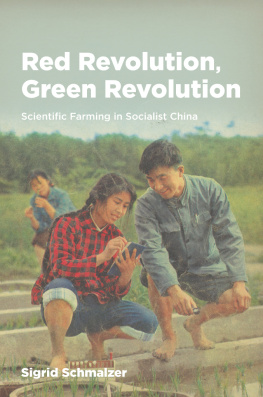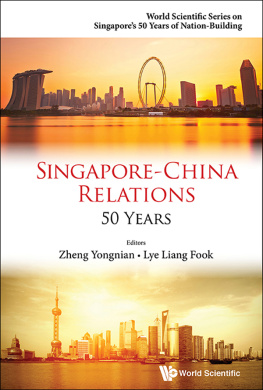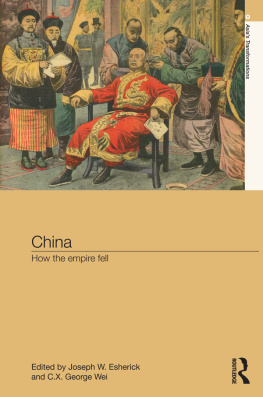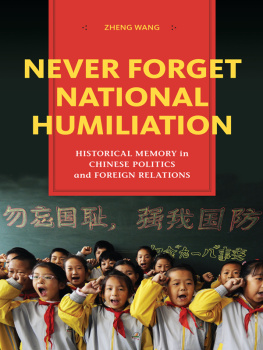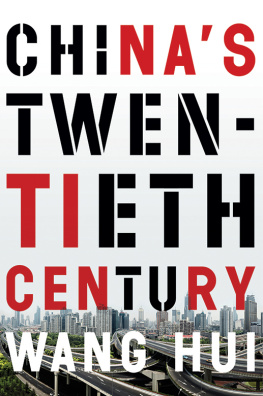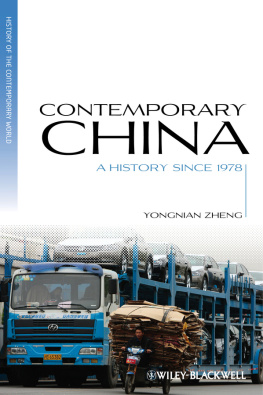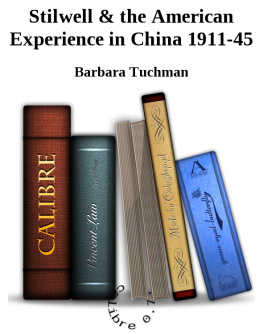Zheng - The politics of rights and the 1911 Revolution in China
Here you can read online Zheng - The politics of rights and the 1911 Revolution in China full text of the book (entire story) in english for free. Download pdf and epub, get meaning, cover and reviews about this ebook. City: Array, China--Sichuan Sheng., Sichuan Sheng (China), year: 2018, publisher: Stanford University Press, genre: Politics. Description of the work, (preface) as well as reviews are available. Best literature library LitArk.com created for fans of good reading and offers a wide selection of genres:
Romance novel
Science fiction
Adventure
Detective
Science
History
Home and family
Prose
Art
Politics
Computer
Non-fiction
Religion
Business
Children
Humor
Choose a favorite category and find really read worthwhile books. Enjoy immersion in the world of imagination, feel the emotions of the characters or learn something new for yourself, make an fascinating discovery.

The politics of rights and the 1911 Revolution in China: summary, description and annotation
We offer to read an annotation, description, summary or preface (depends on what the author of the book "The politics of rights and the 1911 Revolution in China" wrote himself). If you haven't found the necessary information about the book — write in the comments, we will try to find it.
Zheng: author's other books
Who wrote The politics of rights and the 1911 Revolution in China? Find out the surname, the name of the author of the book and a list of all author's works by series.
The politics of rights and the 1911 Revolution in China — read online for free the complete book (whole text) full work
Below is the text of the book, divided by pages. System saving the place of the last page read, allows you to conveniently read the book "The politics of rights and the 1911 Revolution in China" online for free, without having to search again every time where you left off. Put a bookmark, and you can go to the page where you finished reading at any time.
Font size:
Interval:
Bookmark:
The Politics of Rights and the 1911 Revolution in China
Xiaowei Zheng
STANFORD UNIVERSITY PRESS
STANFORD, CALIFORNIA
Stanford University Press
Stanford, California
2018 by Xiaowei Zheng. All rights reserved.
No part of this book may be reproduced or transmitted in any form or by any means, electronic or mechanical, including photocopying and recording, or in any information storage or retrieval system without the prior written permission of Stanford University Press.
Printed in the United States of America on acid-free, archival-quality paper
Library of Congress Cataloging-in-Publication Data
Names: Zheng, Xiaowei, author.
Title: The politics of rights and the 1911 Revolution in China / Xiaowei Zheng.
Description: Stanford, California : Stanford University Press, 2018. | Includes bibliographical references and index.
Identifiers: LCCN 2017046983 (print) | LCCN 2017048479 (e-book) | ISBN 9781503601093 (e-book) | ISBN 9780804796675 (cloth : alk. paper) | ISBN 9781503601086 (pbk. : alk. paper)
Subjects: LCSH: ChinaHistoryRevolution, 19111912. | Sichuan Sheng (China)Politics and government20th century. | Civil rightsChinaSichuan ShengHistory20th century. | Political cultureChinaSichuan ShengHistory20th century. | Constitutional historyChinaSichuan Sheng.
Classification: LCC DS773.55.S54 (e-book) | LCC DS773.55.S54 Z47 2017 (print) | DDC 951/.036dc23
LC record available at https://lccn.loc.gov/2017046983
Cover design: Rob Ehle
Typeset by Newgen in 10.5/12 Sabon
To my grandparents, Zheng Tianxiang (19142013) and Song Ting (19182013)
Contents
Acknowledgments
This is a joyful moment for which I have been waiting for a long time. Over the many years since I began this project, I have benefited from the advice, wisdom, and encouragement of many people, and it is now my great pleasure to acknowledge them. First of all, Joseph Esherick was the best mentor a student could possibly hope for. He was generous, sharp, strict, and always there when I needed him. Joe also taught me how to do social history and structural analysis. Paul Pickowicz was the mentor who taught me how to humanize history, how to tell an engaging story, and how to write well. They have remained a constant source of love and inspiration. I also thank Richard Madsen, Takashi Fujitani, John Marino, Cynthia Truant, Weijing Lu, Suzanne Cahill, Marta Hanson, Stephan Tanaka, and Kuiyi Shen. Throughout, Mary Rankin, Frederick Wakeman Jr., Elizabeth Perry, Wen-Hsih Yeh, Matthew Sommer, Edward McCord, Joshua Fogel, Joan Judge, Kenneth Pomeranz, Bin Wong, Jeffery Wasserstrom, Wang Di, Luo Zhitian, Zhang Kaiyuan, Zhang Haipeng, Cui Zhihai, Li Xizhu, Wang Min, Hazama Naoki, Murata Yjir, Ogata Yasushi, Sang Bing, and Xu Jilin have all given me encouragement to take on the project presented here.
Several other people have my deep appreciation. At Peking University, Deng Xiaonan, Yan Buke, and Mao Hanjian stimulated my fascination with political and institutional history. Their influence will be obvious to any informed reader of this book. Niu Dayong and Zhu Xiaoyuan deserve special credit for getting me thinking about being a professional historian. Their faith in me played an important role in whatever success I may have enjoyed. At Yale University, Jonathan Spence, Valerie Hansen, Beatrice Bartlett, Annping Chin, and James Scott gave me confidence and encouraged me to pursue my research and study. To these teachers, I am forever grateful.
This book would not have not been possible without the support of my colleagues and friends at University of California at Santa Barbara. Mhoze Chikowero, Anthony Barbieri-Low, Sabine Frhstck, John Nathan, Xiaorong Li, Xiao-bin Ji, Kate McDonald, Sherene Seikaly, Cecilia Mndez, and Veronica Castillo-Munoz have all engaged with this manuscript. They offered me love, feedback, and key intellectual support. In addition, Sharon Farmer, Sears McGee, Luke Roberts, Elizabeth Depalma Digeser, Terence Keel, John Majewski, Lisa Jacobson, Erika Rappaport, Shu-Chuan Bella Chen, Katherine Saltzman-Li, and Mayfair Yang have made Santa Barbara my second home. I wish to express my gratitude to all my colleagues for creating such a welcoming place to teach and research. Special thanks also to Gao Song for his assistance with mapmaking, to Cathy Chiu for locating important primary sources for me, and to Q. Z. Lau for help with the bibliography.
A number of other scholars, editors, and friends provided valuable criticism as I prepared the present book. The following people did me the honor of commenting on all or part of the manuscript: David Strand, Li Huaiyin, Henrietta Harrison, Wang Di, Yiching Wu, and Prasenjit Duara. The two readers for Stanford University Press have my most sincere thanks for their insightful and detailed comments, and for the exceptional speed with which they reviewed my manuscript. My friends Jenwa Hsung, Sandra Ward, and Nathaniel Rich have spared me from grammatical mistakes and made my language more powerful. Last but not least, my editor, Jenny Gavacs, expertly guided me through the editorial and publication process. My deepest thanks go to the entire team at Stanford University Press: Alan Harvey, Jenny Gavacs, Richard Gunde, James Holt, Kate Wahl, and their colleagues, for steering my book into print with great efficiency, quality, and competence. Stanford University Press is the best academic publisher a first-time author could possibly have. Without their faith and understanding, publishing this book would not have been a possibility.
In the Sichuan Provincial Archives, Xinjin County Archives, the First Historical Archives, Hsei University Library, and the Sanet Keishu collection at Tokyo Municipal Library, I received nothing but kind assistance. My hosts at Sichuan University provided both support and friendship. I want to thank Chen Xiang, Gou Deyi, Li Deying, Liu Yi, Wang Dongjie, Yang Xingmei, and Zhou Ding for their care. The renowned expert on the 1911 Revolution in Sichuan, Professor Wei Yingtao, gave me much-needed encouragement when I first embarked on rewriting the revolution. Most important, Professor Dai Zhili, whose lifelong work was distilled in the multivolume Collection of Historical Materials on the Sichuan Railway Protection Movement, also generously shared with me his original materials, including a complete set of the Newsletter of the Sichuan Railway Protection Association. I will be forever indebted to him.
My research received generous funding from a variety of sources. An SSRC International Dissertation Field Research Fellowship and a Pacific Rim Dissertation Research Fellowship supported my archival research in China. A UCSD Humanities Center Writing Fellowship, a UCSB Hellman Research Fellowship, a UCSB Faculty Career Development Fellowship, and a UCSB Regents Junior Faculty Fellowship supported the writing of from The Railway Movement in Chengdu: Sovereignty of the Nation and Rights of the People, in Ogata Yasushi, ed., The 1911 Revolution in Global History (Tokyo: Kyko Shoin, 2013), 196222.
This book would not have been possible without my family and friends. My parents, Zheng Yisheng and Zhao Jieping, have given their unflagging support and love. I am thankful to them for instilling in me a lifelong desire to learn and to explore the world. Inspiration and intellectual exchanges also came from my best friends: Wang Jinping, Ouyang Mijian, Wang Li, Li Zhipan, Zhao Hui, Jeremy Brown, Matthew Johnson, Dryden Hull, Liu Yue, Zhang Hui, Liu Kuan-yen, Liu Qing, Li Wenjie, Zhou Zhanan, and Gao Bo. This book is dedicated to my grandparents, Zheng Tianxiang (19142013) and Song Ting (19182013), who were revolutionaries throughout their entire lives. They raised me, gave me a sense of meaning in life, and made me an idealist. Even though they were not able see the book before it was finished, their spirit is present in this book. And that spirit will stay with me for the rest of my life.
Next pageFont size:
Interval:
Bookmark:
Similar books «The politics of rights and the 1911 Revolution in China»
Look at similar books to The politics of rights and the 1911 Revolution in China. We have selected literature similar in name and meaning in the hope of providing readers with more options to find new, interesting, not yet read works.
Discussion, reviews of the book The politics of rights and the 1911 Revolution in China and just readers' own opinions. Leave your comments, write what you think about the work, its meaning or the main characters. Specify what exactly you liked and what you didn't like, and why you think so.

